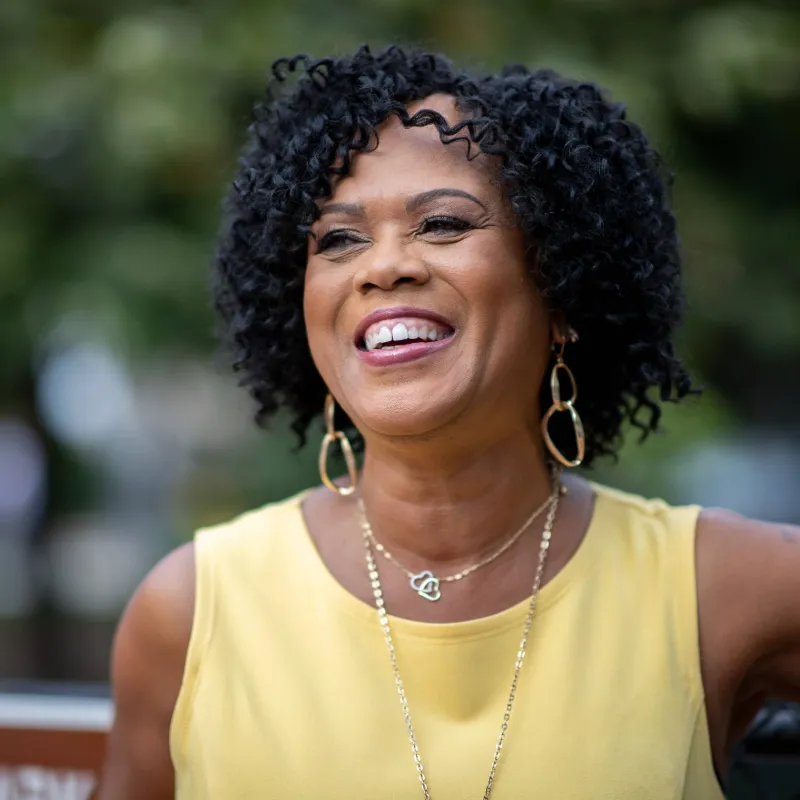Bringing new life into the world can be a profound and transformative experience. However, for Black mothers, this journey often comes with unique challenges and disparities that can impact both their health and the well-being of their babies. In 2024, Black women in the United States are still 3-4x more likely to die from pregnancy related complications than white women. In celebration of Black Maternal Health Week (April 11-17, 2024), we are sharing stories from Black mamas on staff at Provide who have agreed to share their experiences to shine a light on systemic issues.

Monika Gilliard serves as Provide’s Major Gift Officer, and her experiences of pregnancy and motherhood shed light on some of the systemic challenges Black mothers face when navigating the healthcare system.
“My journey toward becoming a parent was not a planned one. I wish it had been,” Monika said. “I was lucky to have a ‘baby daddy’ who was present and supportive. We were told, ‘You can have the baby because the government will help you take care of it.’ The experience would have been different if I had been given more information that I could have some autonomy over the decision whether I wanted to have a baby because, at the time, I did not.”
Monika met her unexpected journey into motherhood with resilience and determination.
“While learning to be a mother, my biggest focus was to not be the kind of mother I had seen around me. So being a good mother (Black or white) was my hope. I am one of the lucky ones to have made it through the system of Black parenting without my boys or I getting caught up in all the negative things that were happening around us.”

Monika is an incredible mother to two adult children and now also a proud grandmother. However, her experiences of not receiving the information and support she needed during her pregnancy illustrates the pervasive influence of systemic racism within healthcare systems.
“The current healthcare system fails Black mothers most by not respecting our own thoughts about how we are feeling during and after pregnancy,” Monika said. “It is unfortunate that there are providers who still think they have the right to tell a patient what to do instead of explaining thoroughly what the situation is and what options we may have. Respecting our voices and our decisions is a must.”
From implicit biases among medical professionals to unequal access to quality care, Black mothers often find themselves navigating obstacles that can jeopardize their health outcomes. Addressing these systemic inequities is essential for creating a more just and equitable healthcare system for all.
“Providers have to understand Black women’s hesitancy in some healthcare atmospheres. We have reason to fear,” Monika added.
Despite these challenges, Black mothers exhibit remarkable resilience and strength as they navigate the complexities of pregnancy and childbirth. By fostering spaces for community support, amplifying their voices, and advocating for culturally competent care, we can empower Black mothers to assert their agency and advocate for their own health and the health of their babies.
“I envision a future where Black mothers are respected and have access to equitable healthcare services,” Monika said. “This is why I work at Provide, to ensure women and girls have the facts to make the decisions that are best for them every day. I want my granddaughters to not experience any negative, unsafe, or racist environments when their reproductive lives begin.”

